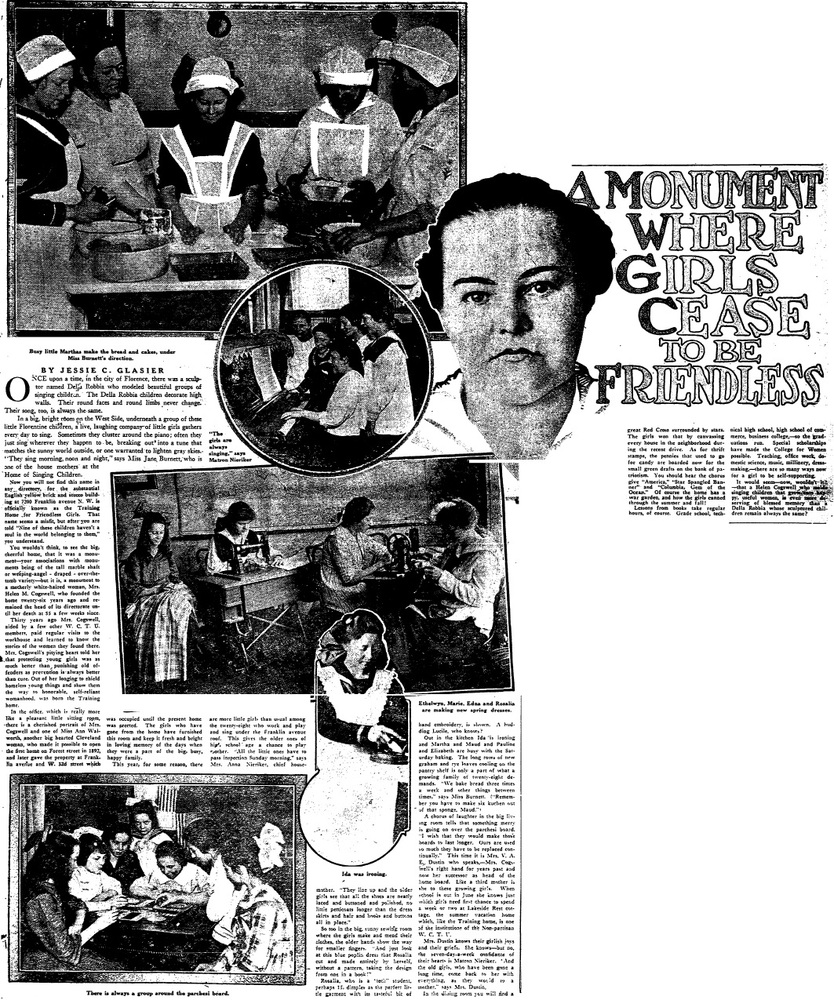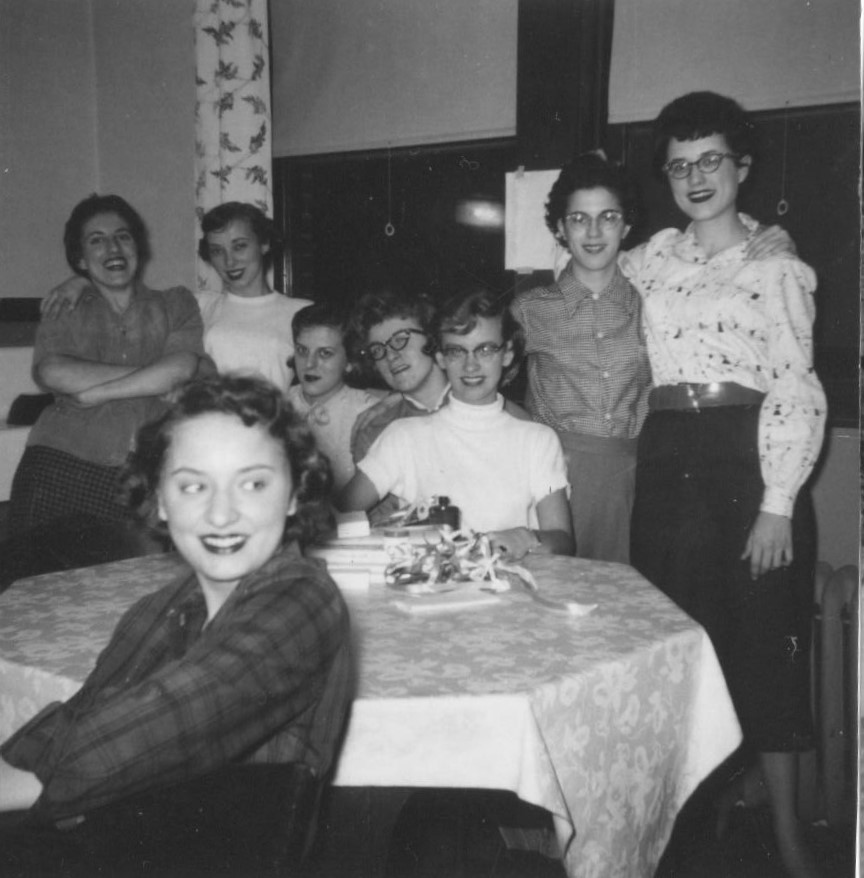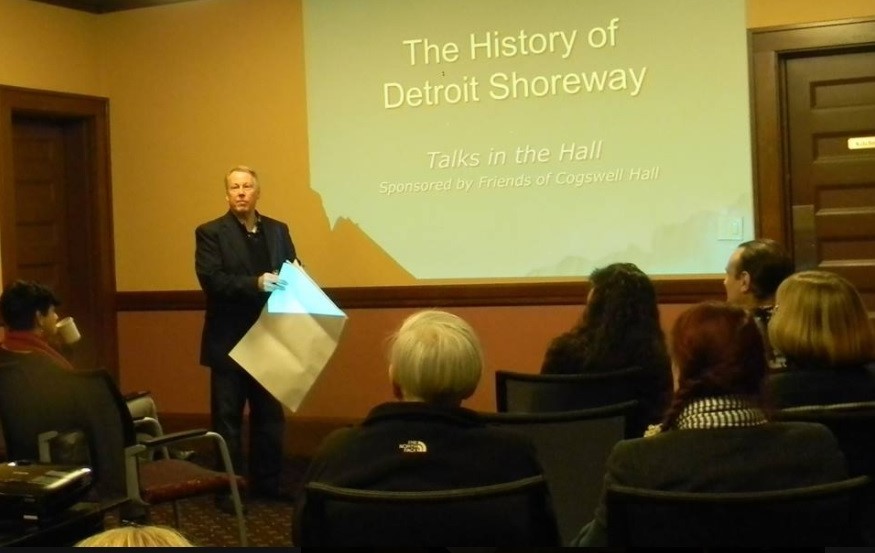Cogswell Hall
For More Than a Century Providing Affordable Housing for People at Risk

In Benjamin S. Cogswell's 1908 obituary, the Cleveland Plain Dealer noted that, following his election in 1875 as Cuyahoga County Clerk of Courts, his wife "began one of the most vigorous liquor campaigns ever seen in this county. It resulted in the indictment of nearly 1,000 saloon keepers. Cogswell dropped out of politics at the end of his term." These few sentences say little about Benjamin Cogswell and more about his wife, Helen Marion Cogswell, the founder of Cogswell Hall and an early era activist in the Women's Christian Temperance Union (WCTU), the national organization founded in Cleveland in 1874 to promote sobriety and to lobby for the prohibition of the manufacture and sale of alcohol in the United States.
After her husband retired from politics in 1878, Helen Cogswell shifted her work at the WCTU into a different arena. She became a member of the Committee on Prison and Jail Visitation. She visited jails all over Cuyahoga County, speaking to incarcerated women, listening to their stories and providing them with moral encouragement. And she advocated that the WCTU establish a home for these "friendless" women so that, upon their release from jail, they could have a chance to become useful members of society. In 1892, acting on Cogswell's recommendations, the WCTU created the first "Training Home for Friendless Girls" in a rented space at Forest Avenue (East 37th Street) and Scovill Avenue (Community College Drive). While the home initially focused on the rehabilitation of young women already in jail, by 1897 it began engaging in more preventive action--providing a home and training that would keep young women without friends or family out of jail.
In 1899, the Training Home for Friendless Girls moved to the west side of Cleveland and into a large house at the corner of Duane Avenue (West 32nd Street) and Franklin Boulevard, after an anonymous donor purchased the house and donated it to the WCTU. The Training Home remained at this location until 1914 when the present larger house at 7200 Franklin Boulevard was built. It is three stories tall, has a brick facade and is English gothic style. The architect of the new house, which has 22 single rooms for residents, was Charles Hopkinson, who designed a number of buildings on Franklin Boulevard, including the Franklin Circle Masonic Temple. Helen Cogswell, who had founded the Home for Friendless Girls in 1892, lived long enough to see the home move into and thrive at its new location. She died four years later In 1918, at the age of 85.
Over the decades that followed, the names and residential policies of the Training Home changed as urban life in Cleveland threw different challenges at young women and others at risk in the community. In 1952, the house was renamed Cogswell Hall to honor its founder. In the same year, it became primarily a short-term residence for young women attending nearby trade or business schools, or working at low income jobs. Then, in the early 1970s, Cogswell Hall shifted its focus, and opened its doors to low-income elderly women, whom it determined were now the members of the community with the greatest need for affordable housing. In the 1990s, there was another change when Cogswell Hall began providing housing to single adult women of all ages. Two decades later, in 2009, when a new addition was added to the original house and separate men and women bathroom facilities installed, federal Fair Housing laws became applicable to Cogswell Hall and it began renting rooms to men for the first time in its history.
A Monument where Girls Cease to be Friendless. That's what the Plain Dealer called the Training Home for Friendless Girls in an article published on March 10, 1918, just a little over a month following the death of founder Helen Marion Cogswell. Nearly 100 years have now have passed since her death. Over those years, Cogswell Hall has evolved into a monument not only to the good work which she did, but also to the work which her successors have done and continue to do to this day, providing affordable housing to both men and women in the Detroit Shoreway neighborhood.
Images








